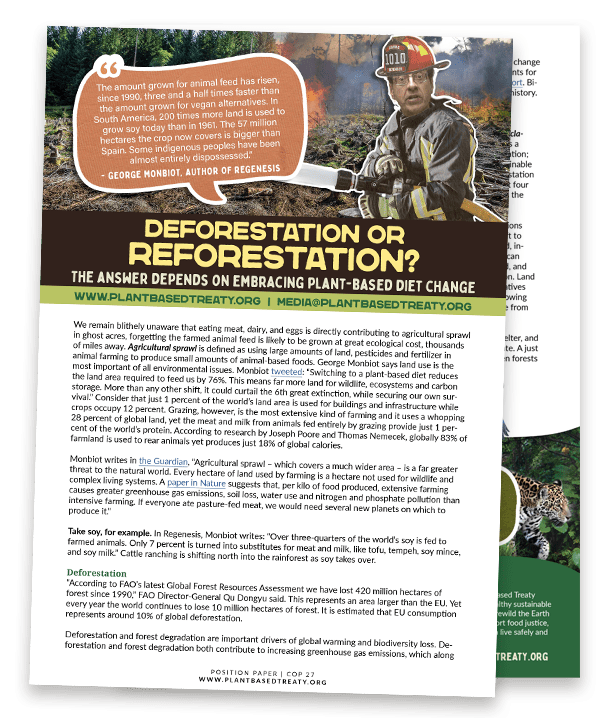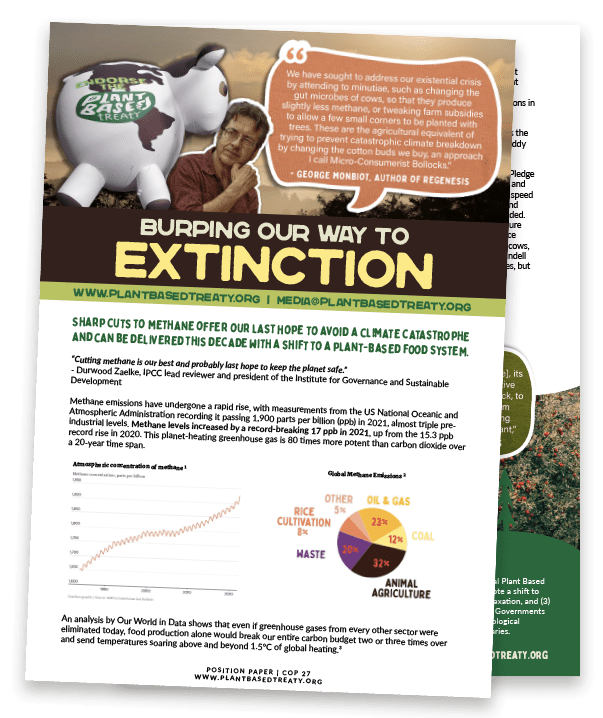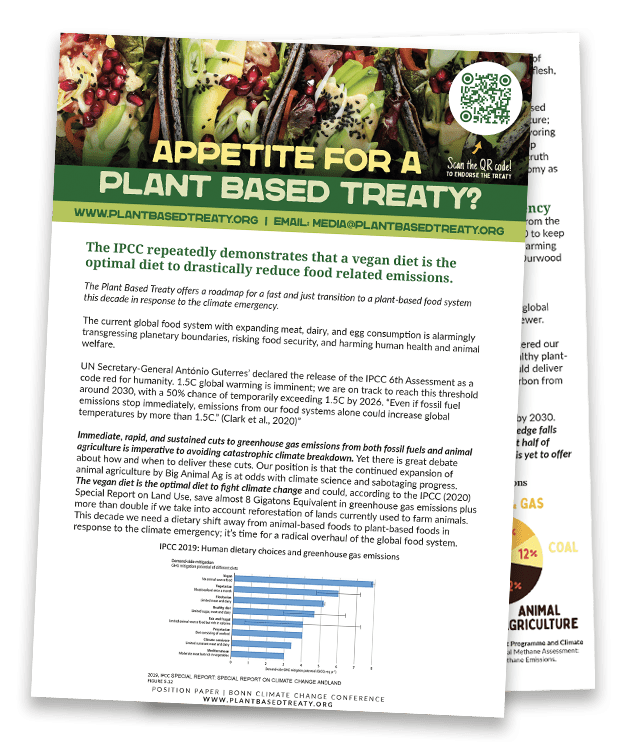Plant Based Treaty
Position Papers
< Sign the Plant Based Treaty
Sign the Plant Based Treaty
21 Cities call for a global Plant Based Treaty
The IPCC demonstrates that a vegan diet is the optimal diet to drastically reduce food related emissions. The Plant Based Treaty offers a roadmap for a fast and just transition to a plant-based food system this decade in response to the climate emergency.
Release Date: May 31, 2023
The current global food system with expanding meat, dairy, and egg consumption is alarmingly transgressing planetary boundaries, risking food security, and harming human health and animal welfare. 21 Cities including the Scottish Capital Edinburgh and Los Angeles have called for world leaders to negotiate a Plant Based Treaty as a companion to the Paris Agreement.
Regenerative farming causes agricultural sprawl
Kick regenerative animal agriculture into the long grass and implement plant-based food solutions to the climate, ocean and biodiversity crisis
Release Date: November 4, 2022
Just as we need to keep fossil fuels in the ground, meat, dairy and eggs need to stay off our plates. That includes “regenerative” animal agriculture. Surprised?
Deforestation or reforestation?
The answer depends on embracing plant-based diet change
Release Date: November 4, 2022
Agricultural sprawl is defined as using large amounts of land, pesticides and fertilizer in animal farming to produce small amounts of animal-based foods.
Critical for survival but it’s treated like dirt
How a Soil Treaty can save the world
Release Date: November 4, 2022
Burping our way to extinction
Sharp cuts to methane offer our last hope to avoid a climate catastrophe and can be delivered this decade with a shift to a plant-based food system
Release Date: November 4, 2022
Growing plant-based foods in fertile soil is as important as leaving fossil fuels in the ground
The Plant Based Treaty, modelled on the Fossil Fuel Treaty, provides a roadmap to ending animal farming
Release Date: November 4, 2022
Appetite for a Plant Based Treaty?
The IPCC repeatedly demonstrates that a vegan diet is the optimal diet to drastically reduce food related emissions
Release Date: June 6, 2022
Immediate, rapid, and sustained cuts to greenhouse gas emissions from both fossil fuels and animal agriculture is imperative to avoiding catastrophic climate breakdown.
The Plant Based Treaty offers a roadmap for a fast and just transition to a plant-based food system this decade in response to the climate emergency.







